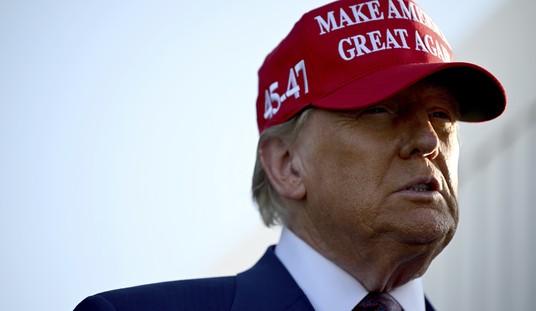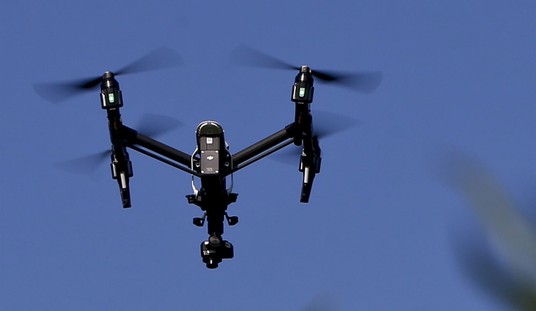In almost all cases, when it comes to running an enterprise, most on the Right would agree that the private-sector can do a better job than the federal government.
Moreover, in almost all cases, most on the Left would disagree with the above statement.
So, why is it that the nation’s air traffic controllers’ union is ready to back a Republican-led bill turn to over the FAA to the “private sector?”

Here is one answer [via The Washington Post]:
Paul Rinaldi, president of the National Air Traffic Controllers Association, told the House Transportation Committee that his union supports legislation that would move his members to a private, nonprofit corporation that would supervise 50,000 U.S. flights each day.
The House bill to create the federally chartered corporation would transfer about 38,000 federal workers, including 14,000 controllers who now work for the Federal Aviation Administration. With the workforce would go a mega-project called NextGen, a modernization of the air system that will cost at least $40 billion.
[….]
“Our 24/7 aviation system has been challenged by 23 extensions in authorization, a partial shutdown, a complete government shutdown, as well as numerous threatened shutdowns,” Rinaldi testified. “Aviation safety should not come second to defunding Obamacare, Planned Parenthood, Syrian refugees or gun control or any other important issue that comes before the body.”
On its face, an outdated air traffic control system plagued by political fighting, seems like a plausible reason for the FAA to spin off to a quasi-private corporation.
In fact, according to Congressman Bill Shuster [R-PA] , if passed, the “Aviation Innovation, Reform, and Reauthorization (AIRR) Act” [full text of bill below] will only make air travel safer.
“…our system is incredibly inefficient, and it will only get worse as passenger levels grow and as the FAA falls further behind in modernizing the system. Furthermore, the FAA’s overly bureaucratic certification processes are handicapping American companies and causing us to fall behind our competition. The AIRR Act is transformational legislation that prepares the U.S. aviation system for the future, helps ensure a modern, safe system that benefits passengers and the economy, and keeps America competitive in a vital industry.”
Sounds good so far, right? Except…
The alleged benefits have been called into question.
Under the GOP-led bill, the FAA would be handed over to a “non-profit,” quasi-private corporation run by an unelected, 11-person board of industry and union special interests.
Writing in The Hill, Congressman Mike Pompeo (R-Kan.) says that “private monopolies run by special interests should not get to raise taxes and set regulatory policy for the United States. That is unfortunately what Congress is about to do to the aviation industry.”
Last year, Delta Airlines—which, unlike other airline companies, is opposed to the measure—stated that separating the FAA “would result in costly organizational disruptions, silos and new barriers to implementing operational improvements that are already proving to be successful.”
On Wednesday, Delta CEO Richard Anderson gave lawmakers a list of reasons [PDF here] why the AIRR bill is a bad idea.
Among the reasons cited, the AIRR:
- Empowers private interests and judges to overrule the FAA on safety policy;
- Sets up a lengthy, undefined transition process that will delay NextGen for years;
- Creates a private monopoly that is too essential to fail and may need a bailout;
- Picks winners and losers—denying commercial general aviation, airports, business jets, UAVs, manufacturers, most unions, states, municipalities, safety experts, and consumers a vote over the governance of our air traffic control system;
- Strips management rights to take mission-critical actions in an emergency;
However, it is these point that are likely why the NACTA—the union that represents the air traffic controllers—finds attractive in the bill.
The union, in essence, would be given its wishes and desires on a silver platter.
- Makes ineffective and meaningless current law prohibiting employees from striking;
- Puts taxpayers on the hook for pensions tied to unrestricted private sector salaries…
Under the Republicans’ bill, air traffic controllers—who are already among the highest paid employees in the federal government—would keep all of their federal health and retirement benefits, while allowing them to negotiate even higher than the federal salary caps once their current contract expires.
However, once the current contract expires, if there is a pay dispute (and since federal employees do not have the right to strike now anyway), rather than the FAA having final authority, the union would have newly-gained access to binding arbitration.
Should an arbitrator rule that higher wages are in order—even if they exceed the federal employee maximum—those higher wages would then get passed along to the airline customer, without any Congressional oversight, through user fees that the new quasi-private corporation will be able to pass along.
It is a given that there are issues with the way the FAA is currently run.
However, the “Aviation Innovation, Reform, and Reauthorization (AIRR) Act” is not the solution.
Here is the full text.
Aviation Innovation, Reform, and Reauthorization Act Text by WorkPlaceReport.com
_____________________
“Truth isn’t mean. It’s truth.”
Andrew Breitbart (1969-2012)
Cross-posted at WorkPlaceReport.com













Join the conversation as a VIP Member